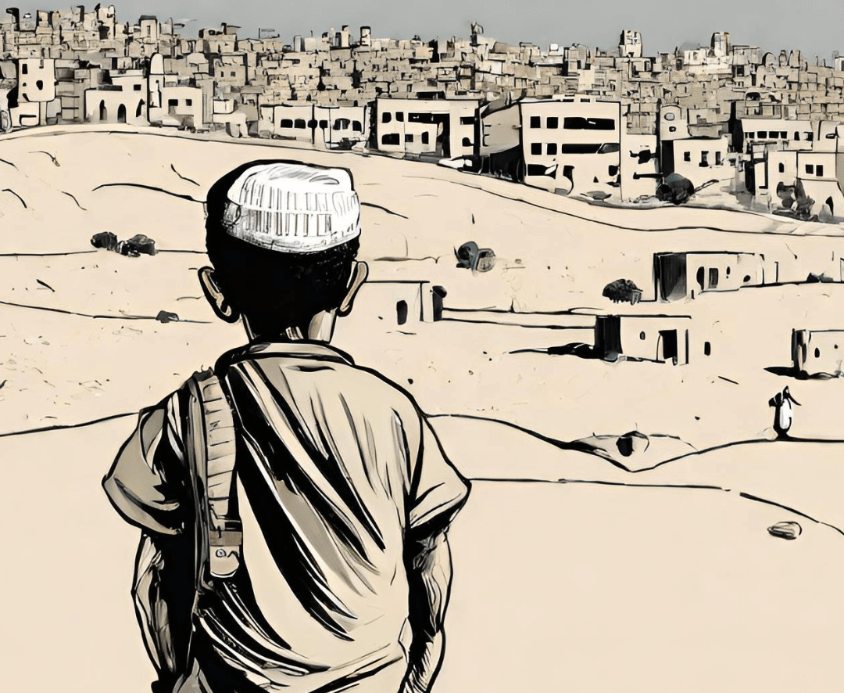
Many young people are understandably upset by the escalating tensions in the Israel-Hamas conflict and will be wanting to understand what’s happening and share their thoughts and feelings.
Here’s a few resources to help.
The long history surrounding the Israeli-Palestinian conflict is deep and complicated. For decades, people have been fighting for their lives and a chance to be heard and treated with dignity, and the conflict has now dramatically escalated.
As an organisation committed to empathy and conscious care, we send love and compassion to all those affected by the Israel-Palestine conflict. We do not take sides but recognise the common humanity of all people and condemn the painful acts of inhumanity being exhibited on both sides. Just as we recognise that most Palestinians are not Hamas, we recognise that most Israelis are not Netanyahu’s government. We stand for the safety of children and are part of the universal call for peace.
To support the tricky or uncomfortable conversations that may arise, we’re sharing some of our resources and those from our friends and partners to help teachers, parents and young people bring empathic conversations into the classroom or home.
Welcome the conversations:
Be Brave
Be kind to yourself and recognise that you don’t need to be an expert in the politics to start the conversation. Your role is to welcome the questions and the emotions and allow young people to have a space to talk and be sharing and learning together.
Be Safe
Create a space to talk about the war and how young people are feeling by creating a safe space. Supporting young people to feel safe, to feel heard, to make sense of the world and be understood is essential for their emotional health and wellbeing. Explore our simple guidance here.
Be sure to take care of your own emotional needs in the process - make sure you feel safe and supported too.
Be Connected
Move from a space of anxiety to action, firstly by recognising that others are feeling the same feelings. Find a way to channel emotions into action, whether that is by supporting donations or international aid organisations, writing letters of support or sharing learning with others in school.
To help offer a moment of peace in these challenging times, we are sharing the words and a short animation of Wendell Berry’s poem: ’The Peace of Wild Things’.
Art For Peace is a group of Palestinian and international artists who aim to spread the concepts of justice, peace, freedom and human dignity
Supportive resources:
A short guide from UNICEF on talking to children about war.
Lessons from the Israeli-Palestinian War: Beautiful guidance on encouraging empathy and understanding, with lots of guidance and resources for teachers and parents
A short documentary exploring the lives of Israeli and Palestinian children living in and around Jerusalem. It provides a poignant look at their daily experiences and hopes for the future.
A short ThoughtBox story on diversity and difference
Minecraft Peacebuilders Game - an interactive game inspired by the Nobel Peace Prize and the lives of four Nobel Laureates where students will learn about how they can work towards a better world.
Parental guidance on talking with children about the conflict
An article from The Guardian on why we should not avoid the tricky conversations
A selection of award-winning films sharing stories of Palestinians and Israelis working for a just, free and equal future,
Children of Israel, Children of Palestine by Laurel Holliday. A children’s book featuring letters and artwork from Israeli and Palestinian children, offering a unique perspective on the conflict through the eyes of young people


